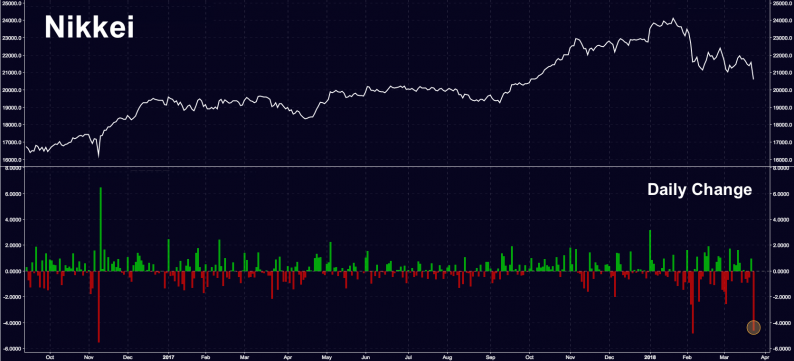It was a black day for equities in Asia and Japan was hit especially hard.
By the time it was over, the Nikkei was lower by 4.5% and at one point, it was down the most since the U.S. election.

Needless to say, the surging yen didn’t help matters as the risk-off sentiment drove USDJPY beyond 105 for the first time in 16 months.

“Uncertainty over trade tensions between China and the U.S. hurt sentiment toward the dollar-yen as there is no clear technical support following the drop below 105,” Koji Fukaya, CEO at FPG Securities in Tokyo told Bloomberg on Friday.
The BoJ is in a particularly difficult spot here. The U.S. (whether Larry Kudlow admits it or not) has adopted a weak dollar policy by proxy and thanks to the fact that the addition of YCC to the policy mix has led to a steady taper of JGB purchases, Kuroda has a tough time convincing the market that any increase in JGB buying at regular ops is anything other than a temporary concession to calm markets.

That’s why, as Goldman wrote earlier this month, the January 9 trimming of 10-25Y purchases was met with a sustainable dip in USDJPY while the subsequent attempt to effectively negate the hawkish impact of that at the next op was quickly faded.

This is going to become a big deal at some point because it effectively means the BoJ is trapped. They have no way to lean against yen appreciation. The only way out for Japan would be overt currency intervention (a non-starter given Trump, trade, and bowling balls) or else the BoJ buying foreign bonds which would be immediately seen for what it is (a rather thinly-veiled attempt to couch FX intervention in terms of monetary policy efficacy). Here are some notable (given the circumstances) highlights from Wakatabe’s cameo in parliament:













Leave A Comment